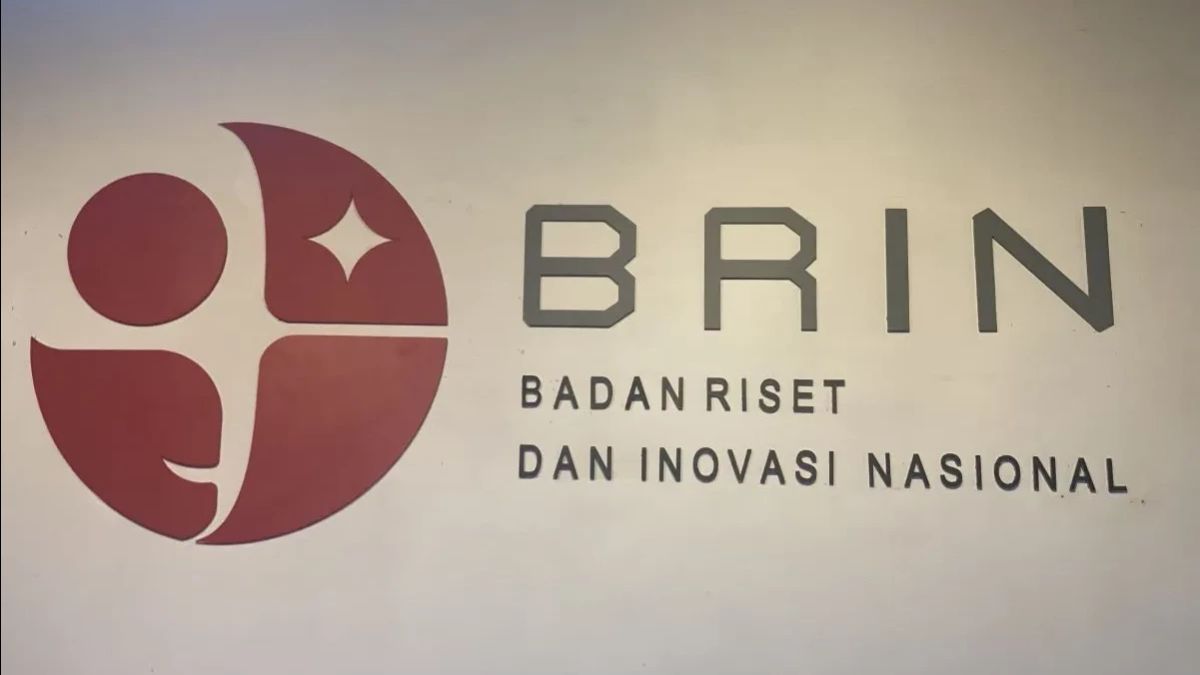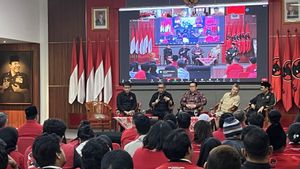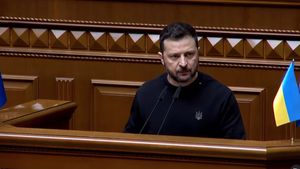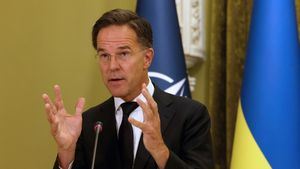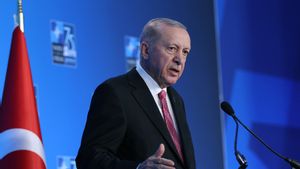JAKARTA - Researcher from the National Research and Innovation Agency (BRIN) Abdul Jamil Wahab explained that cross-religious greetings are a form of effort and awareness to continuously care for Indonesia's diversity.
He considered that pluralism was God's order. For this reason, the public must not have the desire to remove the pluralism of Indonesia.
"Honesty is needed, especially from religious and community leaders, to convey that religious differences should not be the cause of social discrimination just because they have a different faith from the majority of Indonesia," Jamil said in his statement, Friday, June 7, quoted by Antara.
Previously, the Indonesian Ulema Council (MUI) through its fatwa issued at the Ijtima Ulama in Bangka Belitung a few days ago stated that cross-religious greetings were not justified for Muslims. Because greetings are part of the ubudiyah. As a result, the fatwa reaped a pros and cons polemic.
According to Jamil, those who prohibit the use of interfaith greetings depart from the thought that greetings are a form of ubudiyah or matters of worship, so they cannot be combined with greetings from other religions.
"But that there are various greetings, if we understand them as words of greeting to other people or tahniah, I don't think there is a problem. Furthermore, if we mean that cross-religious greetings only in terms of pronunciations that use different or varied languages, in accordance with the audience in front of us, I don't think it's a problem," he explained.
He also hopes that the government can pay even more massive attention to the issue of religious harmony. Infrastructure development is considered important, but do not let it defeat the importance of giving dialogue space across faiths, both at the central and regional levels.
Moreover, he continued, the Indonesian people have just commemorated the Birthday of Pancasila. The Indonesian people should be reminded again that the great gift of God that was given to this nation.
Not only social and cultural diversity that is given a special place, but differences of belief are also accommodated by Pancasila as the nation's philosophy.
"The founders of this nation have designed Pancasila in such a way that Indonesia is a country that is able to bridge the concept of God with the social aspect," said Jamil.
Discussing the essence of Pancasila as a benchmark in living in the state and society, he stated that the first precept in Pancasila could be considered an element that unites differences of beliefs in Indonesia.
"That in the first precept of Pancasila, 'God Almighty,' is able to accommodate the wishes of various groups of people, especially those representing different religions," he added.
"Previously, there was the word run Islamic law' and so on, which was later deleted in the final determination on August 18, 1945. In the end, Pancasila only contained God Almighty' as the first precept," he continued.
SEE ALSO:
Jamil said that the first precept of Pancasila until now was agreed together because it was not tendentious towards one of the religions. This was done because the first precept of Pancasila which still contained the word Islamic law' was rejected by several parties who felt they were not represented by it.
Using more general sentences, Pancasila can then be mutually agreed because it is considered not specializing a certain religion. The agreement in the first precept of Pancasila is also the end of a long debate when the Indonesian state is formulated.
The existence of the concept of belief in the first point of Pancasila directly confirms that the Indonesian state initiated by the founders of the nation is not a secular state, which in fact eliminates religious rules in its constitution.
"The constitution of the Indonesian state guarantees religious adherents, not only those who are Muslim because of the majority, but all religious adherents have the same position in the eyes of law and state. This also shows that Indonesia legally upholds the value of tolerance, which has also been represented by the point of 'God Almighty' in Pancasila, "he concluded.
The English, Chinese, Japanese, Arabic, and French versions are automatically generated by the AI. So there may still be inaccuracies in translating, please always see Indonesian as our main language. (system supported by DigitalSiber.id)
